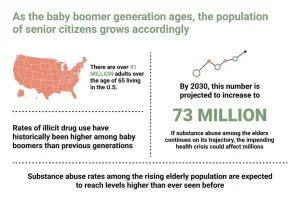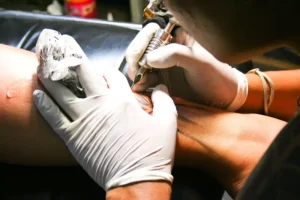
Resolve to work at making things better between you and keeping your promises. Give each other space to figure out any new roles within your relationship and take things slowly. Don’t expect immediate forgiveness, and also, don’t pressure yourself to fix every broken relationship immediately.
Is Sober Living a Good Idea For Me?

To learn more about addiction recovery, including AA, reach out to Silver Mist Recovery. Ninety percent of the time, I keep my mouth shut, but I am my son’s mother. I have a responsibility to parent him and speak out for his best interests. Early in my recovery, I learned neither my son nor my husband was listening to anything I said.
Boredom Hacks For Sobriety This Spring
It is freedom from behaviors that do not live up to the new life in sobriety I am choosing to live. People get tired of broken promises, of forgiving over and over and giving second and third, fourth, or fifth chances only to get hurt again. When you’re looking to change both your behavior and your broken relationships, stop making excuses to fulfill your promises.
Steps for Making Living Amends
- To help, we’ve compiled a list of examples of making amends in recovery that deal with ambiguous scenarios.
- While someone may feel ready to apologize and make things right, the other party may need time to process their feelings and decide how they wish to respond.
- This can be a powerful way to move your healing journey forward.
- This dynamic can lead to deeper conversations and a more profound understanding of each other’s experiences, ultimately enriching the recovery process.
- It is not a time to make excuses for our behavior instead, it’s an open door for the wronged person to express themselves.
Accept responsibility for the impact of your actions on others. If you’re a treatment provider and have a question, please reach out and someone from our Customer Success team will be in touch with you shortly. Let them know all the things you’re actively doing to try to prevent these behaviors from happening again. Today, I know my words have value whether they pay attention or not.
- We believe that the only path to forgiveness is asking it of the person we love, the person we believe we hurt, and making amends for what we did wrong.
- The ultimate goal of making amends is to repair relationships, rebuild trust, and demonstrate a genuine commitment to personal growth and recovery.
- These changes can positively impact the people you love and care about.
- And remember, if you are feeling ashamed about mistakes made and damage done during your using days, you are not your disease.
- Sometimes I can listen supportively for a short period of time.

Although recovery in general must be done selfishly (i.e. you must put yourself before others in order to get well), Step Nine is the most selfless of all steps. It’s the point where we acknowledge that our behaviors damage others beyond ourselves. But to rectify this damage, we can’t maintain the same “me first” attitude that many of the other steps require. If approaching alcoholism the other person opens up old wounds or re-traumatizes them, making amends isn’t advisable. If interacting with someone re-traumatizes you, or increases your risk of relapse, you might want to reconsider approaching them. Researched, fact-checked and transparent articles and guides that offer addiction and mental health insight from experts and treatment professionals.
- If you’re actively using drugs or alcohol, making amends can seem like an empty gesture to the other person.
- This clarity helps them articulate their feelings and reflections better during conversations with those they have wronged.
- Change your behavior.The process of making amends does not have to stop after apologizing.
You can still be true to that by making an honest apology and not making excuses for why you didn’t follow through. Then, the next time around, make sure to make good on your word. Step Nine can leave you emotionally exhausted; it’s a difficult step to navigate. But the rewards you’ll reap from living amends can help make the challenges easier and more productive.
- When you struggle with substance use addiction, taking the first steps to learn how to begin the amends process is admitting you need help and starting your recovery journey.
- Making amends can also help individuals overcome feelings of guilt, shame, and remorse, and develop a greater sense of self-awareness and self-acceptance.
- Now, whether it is an apology, a want for forgiveness, or an amends, that person isn’t here and it makes it hard to imagine any of those things are possible.
- I know I said it once, but I’ll say it again – if you are dealing with guilt and you haven’t read the articles above, now is the time.
- This process is described in steps 8 and 9 of the 12-Step Program.
In most cases, the offender owes apologies to the people closest to them, like their friends, parents, and children. Another example is a substance or alcohol-addicted adult child who regularly steals money, jewelry, and other valuable items from their elderly parent’s home. living amends However, they may suddenly feel guilty and decide to change their ways. They can make a living amend to change their lifestyle, get sober, and stop stealing from their parent.
Guilt and Grief: Making A Living Amends

While the process may seem daunting at first, you can make amends in a way that’s sincere and respectful. This can be a powerful way to move your healing journey forward. Talk with your sponsor or others in your recovery community about what has worked for them. If your actions match your intentions and you reach out in person, you are doing the next right thing to right past wrongs. And remember, if you are feeling ashamed about mistakes made and damage done during your using days, you are not your disease.
What’s the Difference between Making Amends and Offering an Apology?
Instead, as you pursue a life in recovery, focus on being generous with your time and giving back to others. In this way, you can take the focus off of yourself and choose to live a life of greater meaning. It’s not one we use too frequently in our everyday language, but it still holds significant meaning. To make amends means to apologize for something you have done or for wronging someone in some way.
